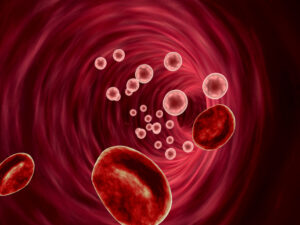Advantages of artificial red blood cells (RBCs) include reduced risks of pathogens and alloimmunization and greater storage time compared to standard RBCs. Several artificial RBCs have been developed; however, they have been associated with higher risks of myocardial infarction and death in clinical trials. Researchers in Japan developed a new generation of hemoglobin-vesicles—hemoglobin essentially encapsulated in a lipid bilayer membrane that mimics RBCs. Hemoglobin-vesicles have performed well in animal models, including safety, pharmokinetics, biodistribution, excretion, and immunological and hematological responses. In this phase 1 open-label trial to test the safety of hemoglobin-vesicles in healthy human subjects, three cohorts received a single intravenous injection of escalating doses of hemoglobin-vesicles. Each cohort was comprised of four males aged 20-50 years old. Cohorts received 10 mL, 50 mL or 100 mL of hemoglobin-vesicles suspended in saline with a hemoglobin concentration of 8.5 to 11.6 g/dL. Several minor adverse events were observed including liposome-induced infusion reactions, fever, and rash; but they all resolved quickly. No significant changes were observed in vital signs including systolic blood pressure. Further investigation is needed as artificial RBCs may potentially be life-saving to trauma patients and/or those with hemorrhagic-shock.
Reference:

